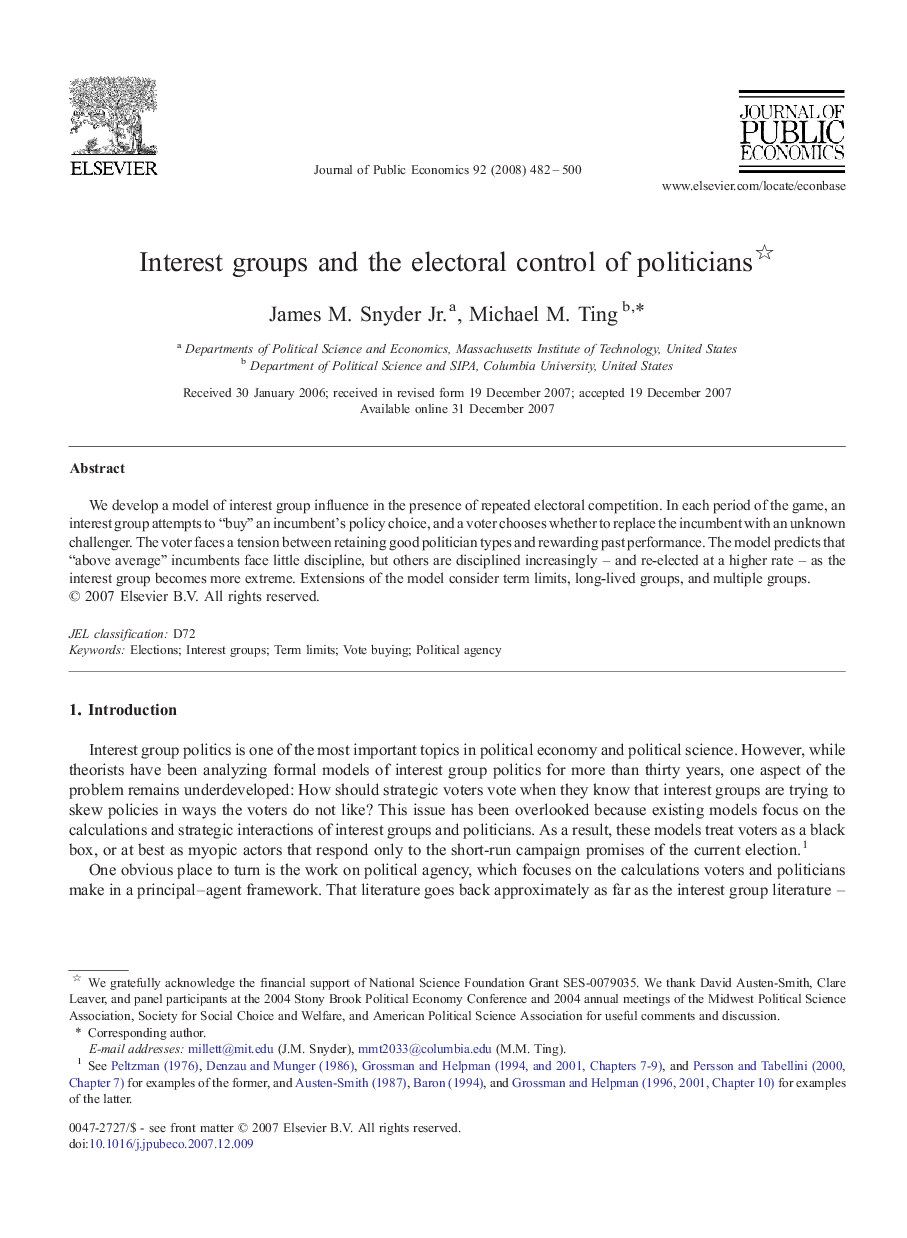| Article ID | Journal | Published Year | Pages | File Type |
|---|---|---|---|---|
| 969947 | Journal of Public Economics | 2008 | 19 Pages |
Abstract
We develop a model of interest group influence in the presence of repeated electoral competition. In each period of the game, an interest group attempts to “buy” an incumbent's policy choice, and a voter chooses whether to replace the incumbent with an unknown challenger. The voter faces a tension between retaining good politician types and rewarding past performance. The model predicts that “above average” incumbents face little discipline, but others are disciplined increasingly – and re-elected at a higher rate – as the interest group becomes more extreme. Extensions of the model consider term limits, long-lived groups, and multiple groups.
Related Topics
Social Sciences and Humanities
Economics, Econometrics and Finance
Economics and Econometrics
Authors
James M. Snyder Jr., Michael M. Ting,
